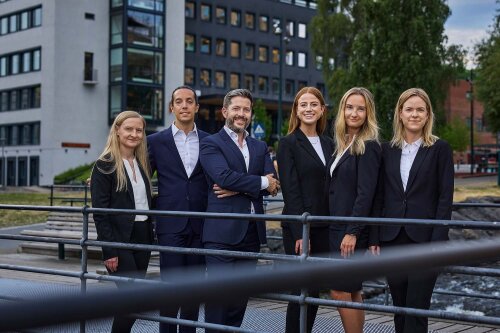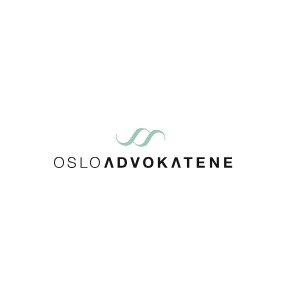Best Adoption Lawyers in Oslo
Share your needs with us, get contacted by law firms.
Free. Takes 2 min.
Free Guide to Hiring a Family Lawyer
List of the best lawyers in Oslo, Norway
About Adoption Law in Oslo, Norway
Adoption in Oslo, Norway, is governed by national legislation that ensures the best interests of the child. The rules and processes are designed to protect the rights of all parties involved, including biological parents, adoptive parents, and the adopted child. Adoption can be domestic, involving children within Norway, or international, which involves children from other countries. These processes are strictly regulated by both national and international laws to ensure compliance with ethical and legal standards.
Why You May Need a Lawyer
Engaging a lawyer in adoption cases is often beneficial due to the complexity and sensitivity of the process. Common scenarios requiring legal assistance include:
- Navigating the intricate legal requirements and documentation involved in the adoption process.
- Providing legal representation and advocacy in court proceedings.
- Negotiating the terms of adoption agreements or resolving disputes that may arise during the process.
- Assisting with understanding international adoption laws if adopting a child from abroad.
- Offering peace of mind by ensuring compliance with all legal obligations.
Local Laws Overview
Adoption in Oslo is primarily regulated by the Adoption Act, which outlines the procedures and requirements for adoption. Some key aspects include:
- Adoption eligibility: Prospective adoptive parents must meet certain criteria, including age, marital status, and financial stability.
- Consent requirements: Generally, both biological parents must consent to the adoption unless otherwise specified by law.
- Child’s best interest: The child’s welfare is paramount, and all decisions are made to serve the best interest of the child.
- International adoption: Involves compliance with both Norwegian laws and the laws of the child’s country of origin, alongside international treaties such as the Hague Convention.
Frequently Asked Questions
What are the general requirements for adopting a child in Norway?
Adopters must be at least 25 years old and demonstrate the capacity to handle the responsibilities of parenthood. Couples must be married or have lived together for at least two years.
Can single individuals adopt in Norway?
Yes, single individuals can adopt, but they must meet the same requirements as couples regarding age, financial stability, and suitability.
How long does the adoption process typically take?
The duration varies, depending on the type of adoption and specific circumstances. Domestic adoptions may take approximately one to two years, whereas international adoptions can take longer.
Is there a home study process involved in adoption?
Yes, a home study is a mandatory step in the adoption process, where social services assess the suitability of the adoptive home environment.
Are there specific laws for step-parent adoptions?
Yes, step-parent adoptions involve a streamlined process but still require legal proceedings to ensure the child's best interest is met.
How does the adoption process begin?
The adoption process begins with submitting a formal application to the county social welfare board, which assesses eligibility and suitability.
What role do birth parents play after the adoption is finalized?
Once finalized, the adoptive parents assume all legal rights and responsibilities. Generally, birth parents no longer have legal rights unless otherwise agreed upon in an open adoption arrangement.
What procedural steps are involved in international adoption?
International adoption requires adherence to both Norwegian and the child’s birth country's laws, including visa and immigration proceedings.
Are there post-adoption support services available?
Yes, various governmental and non-governmental organizations offer post-adoption support, including counseling and networking groups for adoptive families.
What is required for adoption from a Hague Convention country?
Adoption from a Hague Convention country involves additional safeguards to prevent child trafficking and ensure the process adheres to international law.
Additional Resources
For more assistance, consider reaching out to the following resources:
- Norwegian Directorate for Children, Youth and Family Affairs (Bufdir) - Offering guidance on adoption processes in Norway.
- Child Welfare Services - Essential for domestic adoption and child protection matters.
- Adoption associations and support groups - Providing community and support for adoptive families.
Next Steps
If you are considering adoption and need legal assistance, here’s how to proceed:
- Consult with a lawyer specialized in family law and adoption to understand your legal rights and obligations.
- Gather all necessary documentation and proof of eligibility to streamline the process.
- Engage with local support services and adoption agencies for additional guidance throughout the process.
- Remain informed about any changes in laws or procedures that may impact your adoption journey.
With proper guidance and preparation, you can navigate the adoption process confidently and ensure the best outcomes for all involved.
Lawzana helps you find the best lawyers and law firms in Oslo through a curated and pre-screened list of qualified legal professionals. Our platform offers rankings and detailed profiles of attorneys and law firms, allowing you to compare based on practice areas, including Adoption, experience, and client feedback.
Each profile includes a description of the firm's areas of practice, client reviews, team members and partners, year of establishment, spoken languages, office locations, contact information, social media presence, and any published articles or resources. Most firms on our platform speak English and are experienced in both local and international legal matters.
Get a quote from top-rated law firms in Oslo, Norway — quickly, securely, and without unnecessary hassle.
Disclaimer:
The information provided on this page is for general informational purposes only and does not constitute legal advice. While we strive to ensure the accuracy and relevance of the content, legal information may change over time, and interpretations of the law can vary. You should always consult with a qualified legal professional for advice specific to your situation.
We disclaim all liability for actions taken or not taken based on the content of this page. If you believe any information is incorrect or outdated, please contact us, and we will review and update it where appropriate.













